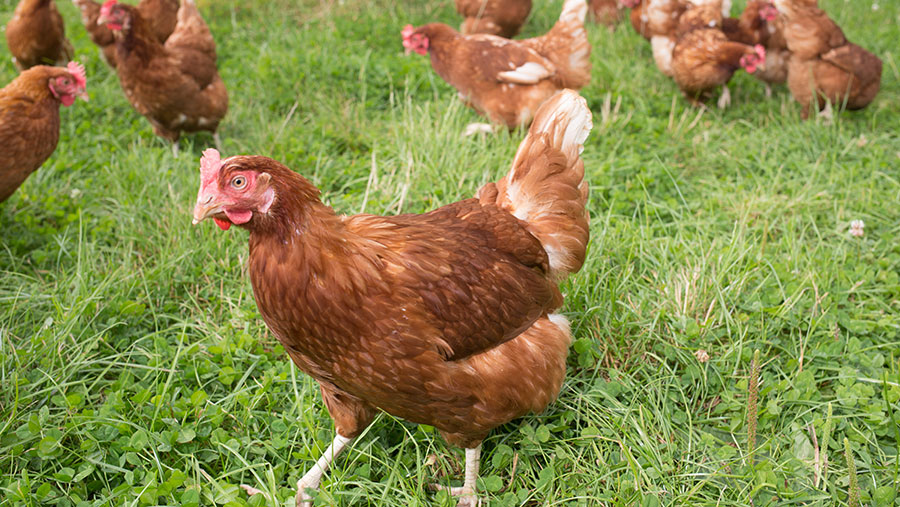Free-range and backyard poultry must be housed from 14 December
 © Tim Scrivener
© Tim Scrivener All free-range poultry will have to be housed from 14 December after the introduction of a new housing order affecting England, Wales and Scotland.
The move follows confirmation this week of a seventh case of high-pathogenic avian influenza – with the latest outbreak on a second turkey unit near Northallerton in Yorkshire.
See also: Advice on housing poultry in an avian flu outbreak
The new measures mean it will be a legal requirement for all bird keepers – including those with small backyard flocks – to keep their birds indoors and to follow strict biosecurity in order to limit the spread of the disease and help eradicate it.
The housing order will stay in place until the government deems the risk has passed.
Government chief veterinary officers are encouraging bird keepers to use the next 10 days to prepare for new housing measures, including taking steps to safeguard animal welfare, consult their vets and, if necessary, put up additional housing.
Measures such as varying pophole opening times and adding in-house enrichments are some of the things keepers can do to prepare their birds for a long spell indoors.
British Free Range Egg Producers Association (Bfrepa) chief executive Robert Gooch said: “The top priority for our members is bird welfare, which is why we fully support Defra’s decision. It is a necessary step towards protecting our hens from avian influenza.
“We are urging all poultry keepers to comply with the rules of the housing order, as well as implementing robust biosecurity protocols.”
Status
One of the main concerns about a housing order is what it might mean for the status of free-range eggs.
The last time such action was taken, in late 2016, the government agreed to a 12-week derogation, during which time the eggs could still be labelled as “free-range” and so retain their premium price.
Since then, the rules mean that the government can now grant a 16-week derogation, which would enable eggs to be marketed as free-range until the beginning of April.
After that, they would have to be reclassified as “barn” eggs, which command a lower price.
Earlier this week, Brefpa speculated that, given the rapid onset of the virus this time – six weeks earlier than in 2016 – there was a probability that it will remain a risk to free-range flocks until mid-April.
If housing is still required into April, and the 16-week derogation has expired, producers and packers would need to negotiate with retailers to use stickers, explaining the higher-welfare status of the eggs, as happened in 2017.
Stay alert and report all cases
Farmers and the general public are being urged to remain on high alert.
If you suspect any type of bird flu in poultry or captive birds you must report it immediately by calling the Defra Rural Services Helpline on 03000 200 301.
In Wales, contact 0300 303 8268 and in Scotland, contact your local Field Services Office. Failure to do so is an offence.
If you find dead wild waterfowl (swans, geese or ducks) or other dead wild birds, such as gulls or birds of prey, you should report them to the Defra helpline (03459 33 55 77 – select option 7).
